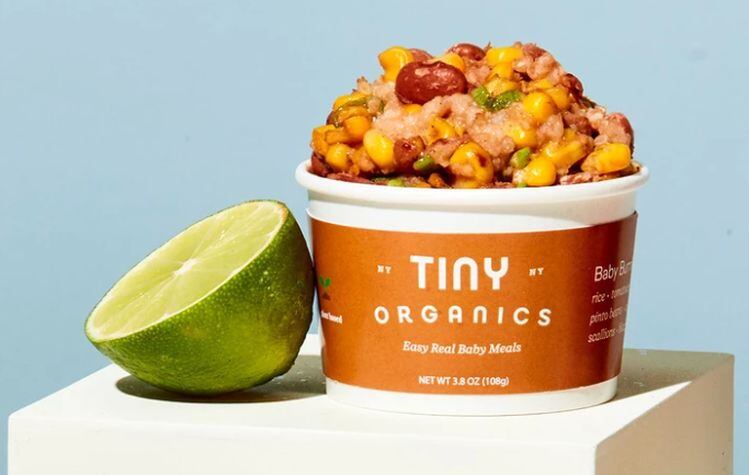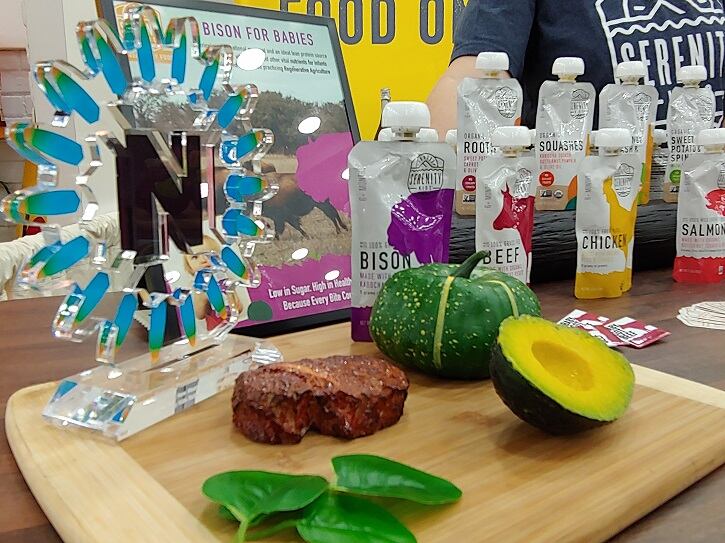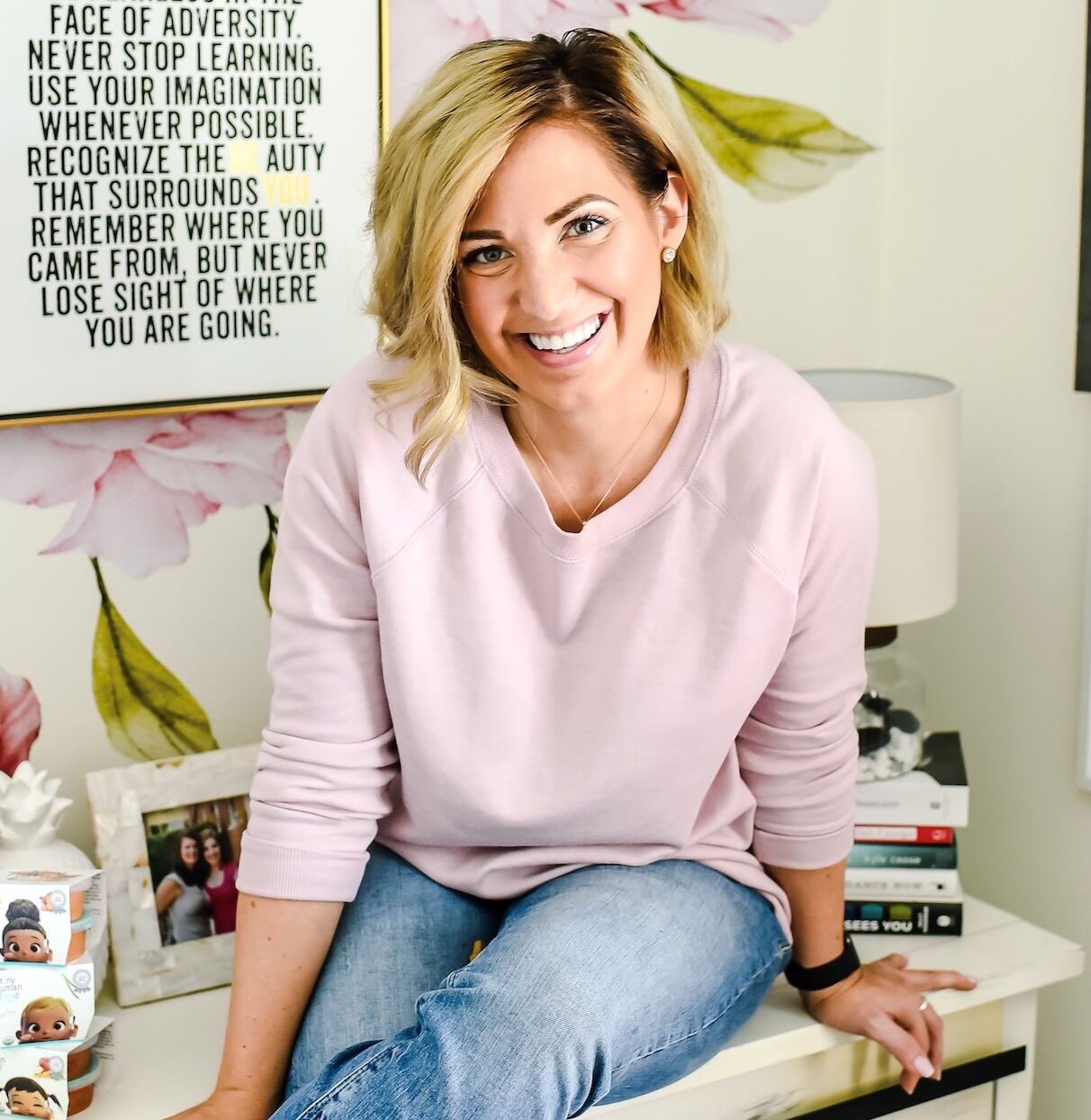So how can we stop the nutritional rot setting in when solid foods are introduced and the data shows that refined grain products, sweets and snacks are starting to creep into the diet?*
Enter Tiny Organics, a New York-based direct to consumer business on a mission to make toddlers more adventurous eaters with fresh prepared ‘savory forward’ organic plant-based meals shipped frozen with dry ice to customers’ doors that can be heated in the microwave or stovetop, featuring recipes from coconut curry and baby burrito bowls to pumpkin spice oatmeal and ratatouille.
The firm – which has been beta testing its products for a year with 100 families in New York in order to refine its offer and determine which recipes have the most appeal - is launching nationwide this month, supported by a $2.5m seed round led by Elizabeth Street Ventures with participation from Human Ventures, Rocana Ventures, Chingona Ventures, Bonin Ventures, Gary Vaynerchuk and Liz Lange.
What exactly is ‘baby food’?
The brainchild of Betsy Fore (who created product lines for Mattel, Hasbro and MindCandy, and founded Wondermento, creator of the WonderWoof BowTie dog activity monitor) and PR and marketing expert Sofia Laurell, who met through ‘startup studio’ Human Ventures in Manhattan, Tiny Organics was created to ensure that children get the nutrition they need during key developmental windows but also taste their first 100 flavors before the age of two.
“We know now that the first 1,000 days are critical in terms of a human development," Fore told FoodNavigator-USA. "But we’re taking that a step further with introducing the 100 first flavors so we can build diverse palates that create adventurous eaters.
“We’ve partnered with nutritional scientists at Tufts to look at children’s nutritional needs from 6 months to three years and beyond, but also to get those 100 flavors in. It’s a more programmatic approach.”
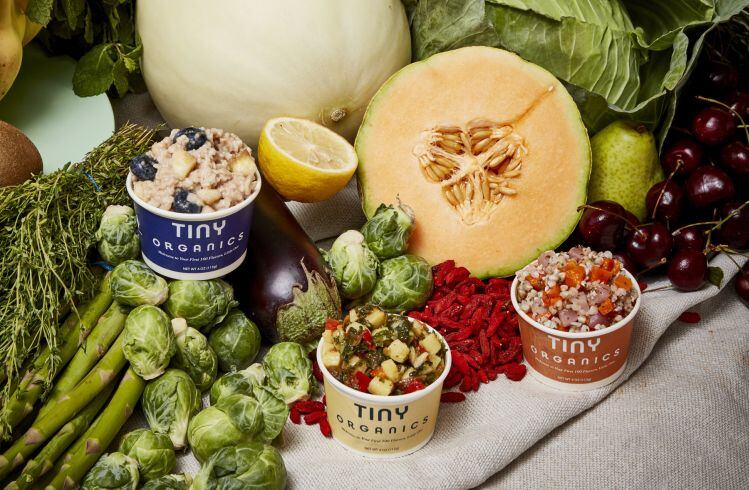
Baby food was 'invented'
If Tiny Organics dishes look like the kind of thing adults might enjoy, that’s because there’s no good reason why very young children should eat ‘baby’ food at all, noted Laurell, who grew up in Finland – home of the baby box (a box given to new parents by the state with essential items for a new baby) - and points out that baby food is a modern invention.
In many parts of the world today, and in most developed countries before the 20th century, babies simply eat what their parents eat - with some modifications - as they are weaned off breastmilk, observe Laurell and Fore, who are fans of baby-led weaning, popular in Europe and gaining traction in the US, whereby babies jump straight to finger foods as soon as solids are introduced, bypassing sugary purees.
“Baby food is invented,” said Laurell.
“It’s only in the last 100 years we’ve started over processing and overthinking it. We’re going back to real whole foods for children and trying to expose them to more flavors and textures as well as encouraging dexterity, eye hand coordination and so on.
“Most baby food brands don’t add sugar any more, but they are still naturally very sugary. Two pouches of some fruit-based purees can have as much sugar as a can of Coke [editor’s note: fruit-only purees typically have 8-15g sugar so two pouches would be 16-30g. A can of Coke has 39g].”
But even if you pick more savory or veggie-forward purees, which are gaining traction as parents pay more attention to sugar levels in baby food, there’s still a lack of healthy, convenient finger food options once children get beyond nine months, she said.
“There’s real white space in the toddler category.”

Is this just for affluent foodies?
As not all families can’t afford $4-5/meal (including delivery), acknowledged Laurell, the aim is to bring prices down closer to $3.99 or even below.
“We want to be an American household name, not just a coastal brand for an affluent community, which is why we’re also looking at going into retail in 2021 and beyond via a Tiny Organics freezer in the baby aisle.”
As for customer acquisition and retention, content is key, said Laurell. “We’ve created a lot of content including a Tiny Kitchen video series and we’re also very active in the channels that millennial moms use, such as Instagram. We’ve also had a lot of success with user generated content from parents that have been testing our products over the past year.”
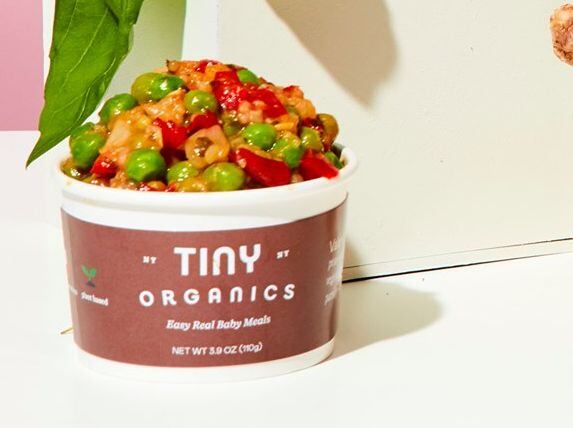
Tiny Organics meals are designed to support brain development, gut development, immunity development and dexterity, says the startup, which provides support and guidance on feeding and nutrition-related question via text.
The meal cups are made out of recyclable cardboard, while the meals are shipped in temperature-controlled boxes using insulation made from compostable and biodegradable materials.
Beta testing
Fore added: “We’ve been working with 100 founding families and tested more than 100 recipes over the course of a year and delivered more than 8,000 meals, which has really helped us refine the product, market, and fit, before taking this to a wider audience. Wev'e had some massive learnings about what recipes work, but also about how to create more sustainable packaging because parents don’t want waste, they want biodegradable, compostable and cardboard packaging.”
As to the viability of the online subscription-based model, which has been challenged in the meal kit arena where churn rates can be high, Tiny Organics is selling frozen meals (so there’s no fresh ingredients rotting in the fridge if your plans change) to families that are locked into a routine. Put another way, if stressed and busy parents find something their kids like, they tend to stick to it, because it solves a problem, particularly for weekdays when they have less time, said Laurell.
Right now the products are made in a commercial kitchen in New York, but as the business scales it will be transitioning to a co-packer in the Midwest with a two-day shipping radius to the whole of the continental US, she said.
An early key hire was chief operating officer Carolyn O'Hare, who has worked in supply chain operations at Beyond Meat, Fiji Water and Little Duck Organics, while S2G Ventures co-founder Victor Friedberg is a key advisor, added Fore.
"We also have a team of over 10 in everything from marketing to operations and we're currently on the hunt for a CTO - that will be our next big hire."
* According to Nestle’s FITS study, 27% of young kids do not consume a single discrete serving of vegetables on any given day, and among those who do, French Fries are the #1 ‘vegetable’ consumed.
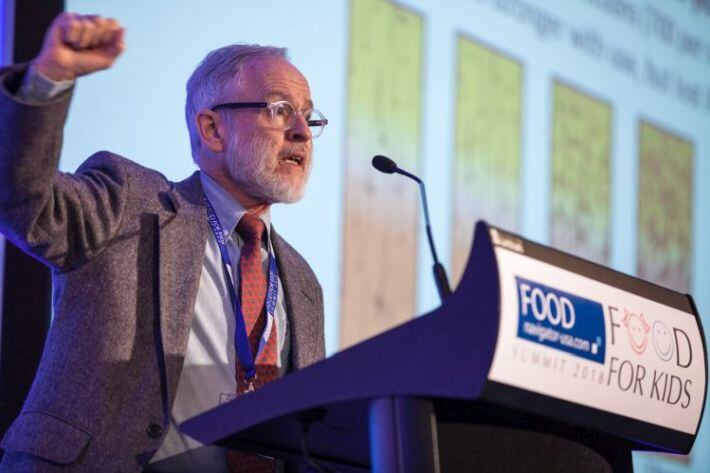
Parents should try to ensure that kids get a mix of fruits, veggies, whole grains, dairy, and quality proteins, at each meal or snack, argues Dr Robert Murray, professor of human nutrition at Ohio State University, who told delegates at our FOOD FOR KIDS 2018 summit last year that, “By the age of two, the child will assume the eating habits of the family.”
Join the conversation at the FOOD FOR KIDS 2019 summit in Chicago Nov 18-20, when Dr Murray will be talking about how maternal nutrition impacts child development (you are what your mother ate?)

